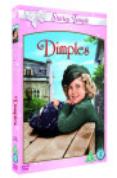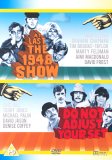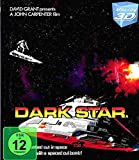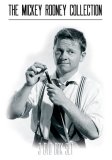![Gone With The Wind [1939]](/pictures/1089843.jpg) Gone With The Wind | DVD | (09/03/2009)
from £11.25
| Saving you £-3.26 (N/A%)
| RRP
Gone With The Wind | DVD | (09/03/2009)
from £11.25
| Saving you £-3.26 (N/A%)
| RRP David O. Selznick's production of Margaret Mitchell's Pulitzer Prize winner Gone With The Wind features Clark Gable and Vivien Leigh in their iconic roles as Rhett Butler and Scarlett O'Hara! This sweeping Civil War-era romance won an impressive 10 Academy Awards (including Best Picture) and has thrilled audiences for more than a half century with its eternal love affair between handsome Rhett Butler (Gable) and his sassy headstrong heroine Scarlett O'Hara (Leigh).
 Dimples | DVD | (07/08/2006)
from £8.98
| Saving you £4.01 (44.65%)
| RRP
Dimples | DVD | (07/08/2006)
from £8.98
| Saving you £4.01 (44.65%)
| RRP Temple stars as a young singer who entertains the New York crowds providing the window of opportunity for her pick pocket of a grand father to carry out his work. A rich lady sees the young girl performing - and after discovering her grim existence with her grand father - offers her an opportunity to rise out of lifestyle...
![Gigi / An American In Paris / High Society [1958]](/pictures/1012305.jpg) Gigi / An American In Paris / High Society | DVD | (08/09/2003)
from £24.96
| Saving you £-1.97 (N/A%)
| RRP
Gigi / An American In Paris / High Society | DVD | (08/09/2003)
from £24.96
| Saving you £-1.97 (N/A%)
| RRP Gigi: Scored by the talented team of Lerner and Lowe the movie features splendid musical numbers like Thank Heaven for Little Girls and I Remember It Well where a scruffy tomboy is transformed into a radiant high society beauty in this glorious musical! An American In Paris: Jerry Mulligan (Gene Kelly) is an American G.I. who decides to stay in Paris after the Second World War. Keen to sample some of the city's legendary romantic lifestyle he becomes an art student and joins a colony of painters living in a Montmartre garret. Penniless and starving his pursuit of the experience of the great artists is fast becoming a little too realistic when he is discovered by wealthy heiress Milo Roberts (Nina Foch). She becomes his patron although Jerry soon realises that her interest in him doesn't end with his art! High Society: Beautiful aloof Newport heiress Tracy Lord (Kelly) is about to marry bland businessman George Kittredge (John Lund) but matters become complicated when her ex-husband C K Dexter-Haven (Crosby) moves to her neighbourhood determined to win back her hand. Things go from bad to worse for Tracy when journalist Mike Connor (Sinatra) arrives to cover the wedding for Spy Magazine. When Tracy is forced to choose between her suitors will she realise that safe doesn't always mean the best bet?
 At Last the 1948 Show/Do Not Adjust Your Set | DVD | (07/05/2007)
from £16.04
| Saving you £13.95 (86.97%)
| RRP
At Last the 1948 Show/Do Not Adjust Your Set | DVD | (07/05/2007)
from £16.04
| Saving you £13.95 (86.97%)
| RRP ![Culloden [1964]](/pictures/1012636.jpg) Culloden | DVD | (03/02/2003)
from £N/A
| Saving you £N/A (N/A%)
| RRP
Culloden | DVD | (03/02/2003)
from £N/A
| Saving you £N/A (N/A%)
| RRP Described in its opening credits as 'an account of one of the most mishandled and brutal battles ever fought in Britain' 'Culloden' was heralded as a breakthrough after its first broadcast by the BBC in December 1964. Peter Watkins' reconstruction of the famous battle of 1746 that 'tore apart forever the clan system of the Scottish Highlands' shot as a current news report by a television crew stunned viewers with the power of its imagery and the immediacy of its storytelling.
![Topaz [Blu-ray] [1969] [Region Free]](/pictures/1125083.jpg) Topaz | Blu Ray | (23/09/2013)
from £N/A
| Saving you £N/A (N/A%)
| RRP
Topaz | Blu Ray | (23/09/2013)
from £N/A
| Saving you £N/A (N/A%)
| RRP Alfred Hitchcock hadn't made a spy thriller since the 1930s, so his 1969 adaptation of Leon Uris's bestseller Topaz seemed like a curious choice for the director. But Hitchcock makes Uris's story of the West's investigation into the Soviet Union's dealings with Cuba his own. Frederick Stafford plays a French intelligence agent who works with his American counterpart (John Forsythe) to break up a Soviet spy ring. The film is a bit flat dramatically and visually, and there are sequences that seem to occupy Hitchcock's attention more than others. A minor work all around, with at least two alternative endings shot by Hitchcock. --Tom Keogh
![Ivan The Terrible - Part 1 And Part 2 - The Boyars Plot [1944]](/pictures/1006387.jpg) Ivan The Terrible - Part 1 And Part 2 - The Boyars Plot | DVD | (12/06/2000)
from £N/A
| Saving you £N/A (N/A%)
| RRP
Ivan The Terrible - Part 1 And Part 2 - The Boyars Plot | DVD | (12/06/2000)
from £N/A
| Saving you £N/A (N/A%)
| RRP Sergei Eisenstein's saga of Czar Ivan IV continues with the struggle for power and the use of secret police, a controversial segment that caused the film to be banned by Stalin in 1946 (the film was not released until 1958). The predominantly black-and-white film features a banquet dance sequence in colour. Obviously the two parts must be viewed as a whole to be fully appreciated. Many film historians consider this period in Eisenstein's career less interesting than his silent period because of a sentimental return to archaic forms (characteristic of Soviet society in the 1930s and '40s). Perhaps it was just part of his maturity. --Bill Desowitz, Amazon.com
![Cause For Alarm [1951]](/pictures/1047852.jpg) Cause For Alarm | DVD | (01/09/2003)
from £6.97
| Saving you £-2.98 (-74.70%)
| RRP
Cause For Alarm | DVD | (01/09/2003)
from £6.97
| Saving you £-2.98 (-74.70%)
| RRP  Dark Star ( 3D Blu-ray ) - John Carpenter - Science-Fiction-Parodie | Blu Ray | (28/03/2016)
from £N/A
| Saving you £N/A (N/A%)
| RRP
Dark Star ( 3D Blu-ray ) - John Carpenter - Science-Fiction-Parodie | Blu Ray | (28/03/2016)
from £N/A
| Saving you £N/A (N/A%)
| RRP ![The Ken Loach Collection Volume 2 [1965]](/pictures/1073336.jpg) The Ken Loach Collection Volume 2 | DVD | (03/09/2007)
from £N/A
| Saving you £N/A (N/A%)
| RRP
The Ken Loach Collection Volume 2 | DVD | (03/09/2007)
from £N/A
| Saving you £N/A (N/A%)
| RRP Available together in a box set for the first time experience the drama and intensity from some truly ground-breaking and memorable British Cinema. Cathy Come Home (1965): Cathy Come Home is probably the most famous British television play ever - watched by a quarter of the population both on its first broadcast in 1966 and on its repeat in 1967. Its impact was enormous provoking questions in the Houses of Parliament and helping launch the new housing charity 'Shelter'. K
![400 Blows [1959]](/pictures/1005967.jpg) 400 Blows | DVD | (16/12/2002)
from £N/A
| Saving you £N/A (N/A%)
| RRP
400 Blows | DVD | (16/12/2002)
from £N/A
| Saving you £N/A (N/A%)
| RRP Praised by film-makers (Akira Kurosawa called it One of the most beautiful films that I have ever seen) and critics the world over Truffaut's 400 Blows launched the Nouvelle Vague and paved the way for some of cinema's most important and influential directors. Twelve-year-old Antoine Doinel has troubles at home and at school. Ignored and neglected by his parents his relationship with his mother is further strained when he discovers that she has taken a secret lover. Added to this his school teachers have written him off as a troublemaker and with luck seemingly never on his side it is Antoine who ends up getting the blame for bad behaviour. Finding refuge only in his love of cinema Antoine soon finds it necessary to break free and discover what the world can offer outside of the confines of his everyday life. This remarkable film features the extraordinary talent of Jean-Pierre Leaud as the rebellious Antoine a character based on Truffaut himself. Antoine Doinel was to make appearances in a number of Truffaut's films (including 'Stolen Kisses' 'Bed and Board' and 'Love on the Run') all of which chart his further adventures into adulthood.
![Night Of The Demon [1957]](/pictures/1075865.jpg) Night Of The Demon | DVD | (17/09/2007)
from £59.99
| Saving you £-44.00 (N/A%)
| RRP
Night Of The Demon | DVD | (17/09/2007)
from £59.99
| Saving you £-44.00 (N/A%)
| RRP ![Waltz Of The Toreadors [1962]](/pictures/1069289.jpg) Waltz Of The Toreadors | DVD | (14/05/2007)
from £8.98
| Saving you £3.00 (42.92%)
| RRP
Waltz Of The Toreadors | DVD | (14/05/2007)
from £8.98
| Saving you £3.00 (42.92%)
| RRP The immortal Peter Sellers is hilarious as a pompous retired general who still has a taste for the ladies in French playwright Jean Anouilh's philosophical farce. A lusty comedy of manners ""Waltz of the Toreadors"" tempers its treatment of an old rake's delusions with generous dollops of wit and compassion.
![The Last Time I Saw Paris [1954]](/pictures/1042911.jpg) The Last Time I Saw Paris | DVD | (07/03/2005)
from £4.60
| Saving you £-0.61 (N/A%)
| RRP
The Last Time I Saw Paris | DVD | (07/03/2005)
from £4.60
| Saving you £-0.61 (N/A%)
| RRP This tragic love story is brought to life with vitality and verve in this no expense spared lavish production. Van Johnson stars as a G.I. with literary ambitions who relocates to Paris after World War 2 and meets a wealthy American girl. They fall in love and settle down as he attempts to write his first novel. His work is not well received and he hits the bottle. The story follows Johnson to America and then back to Paris as the tragic tale of these two star-crossed lovers unfolds. Elizabeth Taylor was never more beautiful and both she and Van Johnson turn in superb performances.
![The Jazz Singer (80th Anniversary 2-Disc Special Edition) [1927]](/pictures/1077858.jpg) The Jazz Singer (80th Anniversary 2-Disc Special Edition) | DVD | (12/11/2007)
from £6.98
| Saving you £12.01 (172.06%)
| RRP
The Jazz Singer (80th Anniversary 2-Disc Special Edition) | DVD | (12/11/2007)
from £6.98
| Saving you £12.01 (172.06%)
| RRP Cantor Rabinowitz is concerned and upset because his son Jakie shows so little interest in carrying on the family's traditions and heritage. For five generations men in the family have been Cantors in the synagogue but Jakie is more interested in jazz and ragtime music. One day they have such a bitter argument that Jakie leaves home for good. After a few years on his own now calling himself Jack Robin he gets an important opportunity through the help of well-known stage performer Mary Dale. But Jakie finds that in order to balance his career his relationship with Mary and his memories of his family he will be forced to make some difficult choices.
 Conflicts - Sino-Japanese War 1937 - 1941 | DVD | (13/12/2004)
from £9.97
| Saving you £8.01 (114.76%)
| RRP
Conflicts - Sino-Japanese War 1937 - 1941 | DVD | (13/12/2004)
from £9.97
| Saving you £8.01 (114.76%)
| RRP Conflicts - Sino Japanese War
![The Last Time I Saw Paris [1954]](/pictures/1081335.jpg) The Last Time I Saw Paris | DVD | (07/04/2008)
from £7.09
| Saving you £-1.10 (N/A%)
| RRP
The Last Time I Saw Paris | DVD | (07/04/2008)
from £7.09
| Saving you £-1.10 (N/A%)
| RRP Based on F. Scott Fitzgerald's classic story Babylon Revisited this epic romance is a captivating blend of Parisian expatriate high society and the struggles of post World War II Europe. When American war reporter Charles Wills (Van Johnson) meets the restless and fun-loving Helen Ellswirth (Elizabeth Taylor) they immediately fall in love. They spend their time staying out all night gambling and living life in the glory of the Parisian artistic Left Bank society. Eventually they get married and have a family but life becomes more difficult as they try to continue on their free-spirited and reckless adventure.
 Dr. Who: Die Invasion der Daleks auf der Erde 2150 n. Chr. - Limited Steelbook Edition (4K Ultra HD+Blu-ray) | Blu Ray | (21/07/2022)
from £N/A
| Saving you £N/A (N/A%)
| RRP
Dr. Who: Die Invasion der Daleks auf der Erde 2150 n. Chr. - Limited Steelbook Edition (4K Ultra HD+Blu-ray) | Blu Ray | (21/07/2022)
from £N/A
| Saving you £N/A (N/A%)
| RRP ![Two Wives At One Wedding [DVD]](/pictures/1097543.jpg) Two Wives At One Wedding | DVD | (16/11/2009)
from £14.56
| Saving you £-4.57 (-45.70%)
| RRP
Two Wives At One Wedding | DVD | (16/11/2009)
from £14.56
| Saving you £-4.57 (-45.70%)
| RRP Tom Murray and his new bride's wedding day takes a turn for the worse when a mysterious woman arrives uninvited with a startling revelation - she claims to be Tom's wife. Annette is a French woman who Tom had a wartime romance with at the end of the Second World War after he was injured near Normandy and she nursed him back to health. It is then that Annette claims the marriage took place something Tom has no memory of. She is willing to divorce Tom but only with a ''10 000 settlement. Blackmailed and with his promising medical career in the balance should the story reach the papers Tom must hunt down the facts to determine if Annette is really telling the truth.
 Mickey Rooney Collection | DVD | (14/04/2008)
from £10.49
| Saving you £-6.50 (N/A%)
| RRP
Mickey Rooney Collection | DVD | (14/04/2008)
from £10.49
| Saving you £-6.50 (N/A%)
| RRP The Mickey Rooney Collection (3 Discs)

Please wait. Loading...
This site uses cookies.
More details in our privacy policy